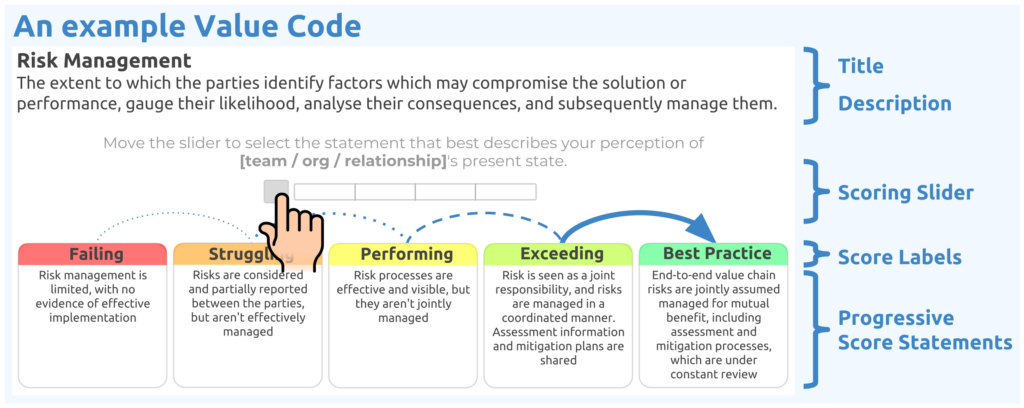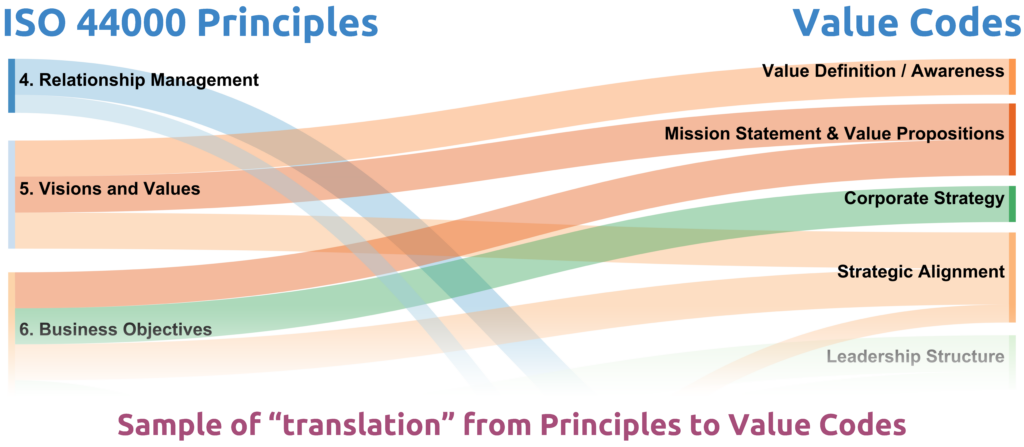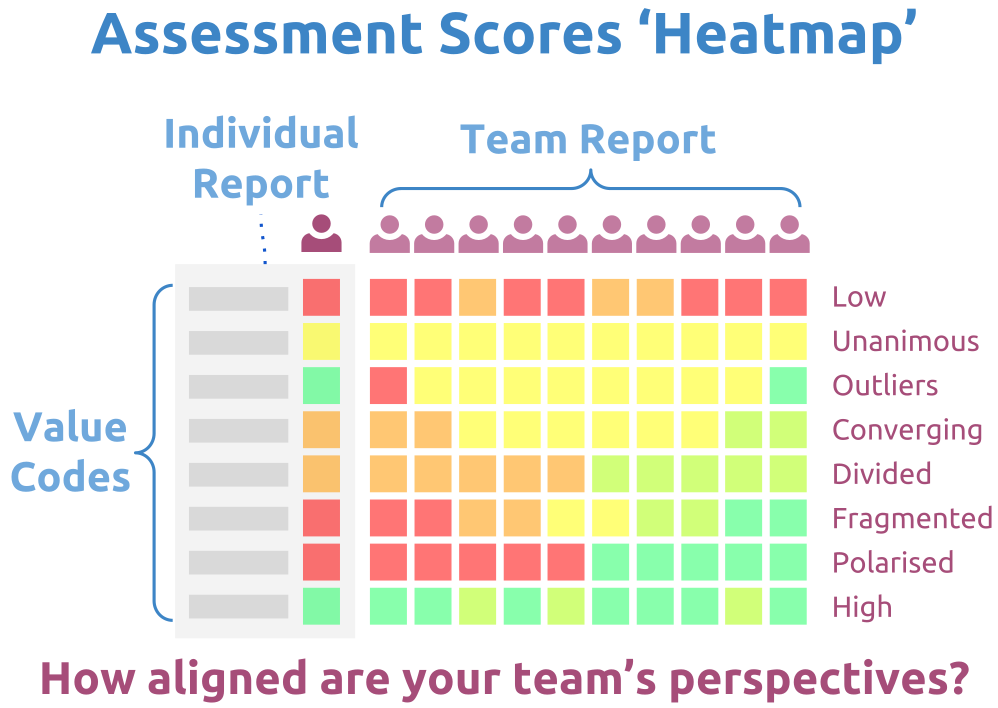Unlocking Collaborative Working: Part 2

This article – split here into Part 1 and Part 2 – originally appeared in the May 2019 edition of The Partner (pp88-89).
It demonstrates how to ground high-level Things That Matter through measurable, actionable Value Codes – an early example of the Three Steps to Value.
The article remains fully relevant both to the specific Collaborative Working domain and as a general example of what is needed in all domains.
“If you can’t measure it, you can’t change it”
‘Things that matter’ are necessarily high-level, and often wide-ranging, open-ended and “emotive”. Value Codes are where those ‘things that matter’ specifically apply to deliver value in action; they are discrete, outcome-driven and factual.
Each Value Code can be linked to one or more of the ‘things that matter’, and begins with a concise title and a short description. Crucially, it then has five progressively labelled scoring statements that can set out in detail the range of possible performance.
“Subjective” opinion can thereby be harnessed around “objective” descriptions to help establish:
- What “good” outcomes look like, and what value getting there would represent.
- What “bad” or “sub-optimal” outcomes look like, and the costs and risks these would incur.
- Where you are now, where you need to be, and how to get there.
By factoring out and communicating the ‘things that matter’ in measurable Value Codes, what was previously high level and often “intangible” becomes both specific and “tangible”.

When deployed via secure, limitlessly scalable online diagnostics, Value Codes enable the effective gathering of feedback and improved performance on the ‘things that matter’ – engaging and motivating teams of any size to achieve change.
NIP has distilled 80+ general and sector-specific sources on change and leadership (methodologies, standards, books, reports, etc) into a comprehensive library of generic Value Codes that can be selected from, and optionally customised, to enable effective and collective focus on the ‘things that matter’.

By taking this approach to express and present the ISO 44000 Principles through 22 Value Codes within five sections (Strategy & Value, Leaders & People, Governance, Performance & Improvement, and Behaviours & Attitudes), NIP has made it possible to efficiently and effectively:
- Spread awareness of the Principles, what they mean in practice, and your organisation’s present standing in relation to them.
- Uncover differences of perception (between members of your team and/or between you and your partners) about present performance.
- Identify how far you are from your desired outcomes, and discern what to prioritise (including to progress within ISO 44001).
First steps
To begin clarifying where and how the ISO 44000 Principles should add value (and whether or not they are doing so), a first step is to use the Value Codes to capture your individual perspective.
The Value Code reporting harness can also provide powerful insights into a wider range of perspectives across internal and/or external stakeholders, highlighting key differences and areas for attention:

This approach unlocks and accounts for value, supporting individuals, teams and organisations within working relationships to discern precisely where and how to improve, and achieve change.
As a first step, NIP invites you to complete an initial, 10-20 minute basic self-assessment, free of charge for the ICW community – go to nipltd.com/iso44000 to register.
Are you and your organisation ready to unlock the value of collaborative working…?
